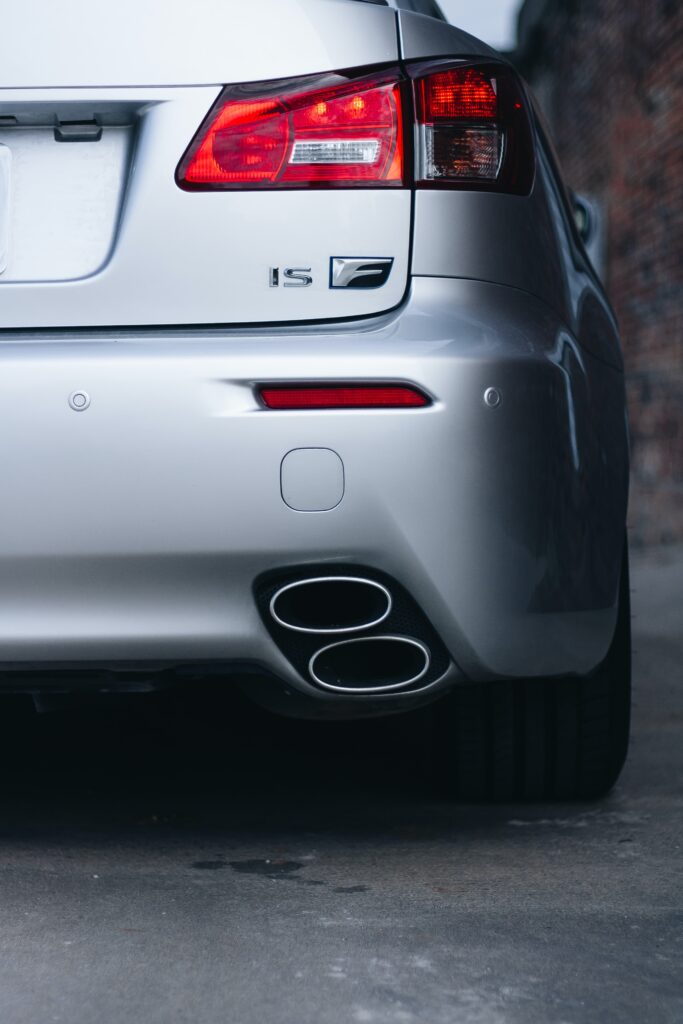If you’ve ever wondered about the impact of an exhaust system on your vehicle’s horsepower, you’re about to find out. The way your exhaust system is designed and built plays a crucial role in determining the amount of power your engine can produce. From the type of materials used to the size of the pipes, each component has a direct effect on the performance of your vehicle. So, let’s explore the fascinating world of exhaust systems and uncover how they can either boost or hinder your horsepower.

Understanding the Basics of an Exhaust System
Definition of an exhaust system
An exhaust system is a crucial component of a vehicle that is responsible for safely expelling the hot gases produced by the engine. It consists of various interconnected components that work together to ensure efficient and effective removal of exhaust gases from the combustion process.
Components of an exhaust system
The main components of an exhaust system include the exhaust manifold, catalytic converter, muffler, and tailpipe. The exhaust manifold collects the gases from the engine cylinders, while the catalytic converter helps reduce harmful emissions. The muffler serves to reduce noise levels, and the tailpipe is responsible for directing the exhaust gases out of the vehicle.
Function of an exhaust system
The primary function of an exhaust system is to expel the harmful gases produced during the combustion process away from the engine and passengers. Additionally, it plays a crucial role in reducing noise levels and improving the overall performance of the engine.
Purpose of Exhaust System in a Vehicle
Expelling exhaust gases
The primary purpose of an exhaust system is to ensure the safe and efficient expulsion of exhaust gases from the engine. These gases, including carbon dioxide, carbon monoxide, nitrogen oxides, and hydrocarbons, can be harmful to both the environment and the occupants of the vehicle if not properly removed. The exhaust system channels these gases away, reducing their impact on air quality and preventing their accumulation within the vehicle cabin.
Reducing noise
Another important purpose of an exhaust system is to reduce the noise generated by the engine during combustion. The combustion process in the engine creates intense pressure and rapid expansions of gases, resulting in loud noises. The muffler, a key component of the exhaust system, is designed to dampen and absorb these noises, making the vehicle quieter and more comfortable for the occupants and reducing noise pollution.
Improving engine performance
Beyond its role in expelling gases and reducing noise, an exhaust system also has a significant impact on the overall performance of the engine. By optimizing airflow, reducing back pressure, and enhancing scavenging, the exhaust system allows the engine to operate more efficiently and effectively. This leads to improved fuel efficiency, increased power output, and enhanced throttle response, all of which contribute to better engine performance.

Effect of an Exhaust System on Engine Efficiency
Optimizing airflow
One of the key ways an exhaust system affects engine efficiency is by optimizing airflow. The exhaust manifold and the downstream components, such as the catalytic converter and muffler, are designed to streamline the movement of exhaust gases. This ensures that the gases flow smoothly out of the engine, minimizing resistance and back pressure.
Reducing back pressure
Back pressure refers to the resistance encountered by exhaust gases as they try to exit the engine. A well-designed exhaust system aims to minimize back pressure by utilizing carefully designed piping, smooth bends, and efficient components. By reducing back pressure, the exhaust system allows the engine to expel exhaust gases more freely, improving its efficiency and power output.
Enhancing scavenging
Scavenging is a process in which the high-pressure exhaust gases help draw air/fuel mixture into the cylinders during the intake stroke of the engine. An efficient exhaust system facilitates better scavenging by expelling the exhaust gases quickly and effectively. This helps create a vacuum effect, which improves the flow of the air/fuel mixture into the cylinders, resulting in improved combustion and increased power output.
Connection Between Exhaust System and Horsepower
Explanation of horsepower
Horsepower is a unit of power that measures the rate at which work is done in an engine. It is a vital metric for evaluating the performance of an engine, as it directly influences how much mechanical energy can be produced by the engine in a given amount of time. Higher horsepower generally translates to better acceleration, faster top speeds, and greater towing capacity.
Role of exhaust system in horsepower generation
The exhaust system plays a critical role in generating horsepower in an engine. By optimizing airflow, reducing back pressure, and enhancing scavenging, the exhaust system enables the engine to expel exhaust gases efficiently and effectively. This allows for more complete combustion of the air/fuel mixture, maximizing the power produced by the engine and ultimately increasing its horsepower.
Interplay between exhaust system and horsepower
The exhaust system and horsepower are intricately connected. A well-designed exhaust system can significantly impact the power output of an engine, leading to increased horsepower. On the other hand, a poorly designed or malfunctioning exhaust system can create excessive back pressure, reduce engine efficiency, and hinder horsepower generation. Therefore, understanding this interplay and ensuring an optimal exhaust system is crucial for maximizing the horsepower of a vehicle.

Impact of Back Pressure on Horsepower
Definition of back pressure
Back pressure refers to the resistance encountered by the exhaust gases as they flow through the exhaust system and try to exit the engine. When the exhaust flow is restricted, either due to a poorly designed exhaust system or a blockage, higher back pressure is created. This increased resistance can have a detrimental effect on both the engine and its horsepower output.
Negative impact on engine and horsepower
Excessive back pressure can hinder engine performance and reduce horsepower in several ways. It can restrict the flow of exhaust gases, leading to incomplete evacuation of combustion residues. This can result in decreased power output, reduced fuel efficiency, and increased engine temperature. Additionally, back pressure can cause the valves to work harder, which can lead to premature valve failure or damage.
Regulation of back pressure for optimal performance
To ensure optimal performance and maximize horsepower, it is essential to regulate back pressure within an acceptable range. A well-designed exhaust system minimizes back pressure by utilizing appropriate pipe diameter, smooth bends, and efficient components. Balancing back pressure is vital to promote efficient air/fuel mixture intake, improve the engine’s overall performance, and maximize horsepower output.
Understanding the Role of Exhaust Scavenging
What is scavenging in exhaust systems
Scavenging, in the context of an exhaust system, refers to the process of using high-pressure exhaust gases to draw in the air/fuel mixture into the engine’s cylinders during the intake stroke. It involves creating a vacuum effect that improves the flow of the mixture into the cylinders, enhancing combustion and power output.
Relevance in horsepower generation
Scavenging plays a crucial role in horsepower generation by ensuring that a fresh mixture of air and fuel reaches the cylinders for combustion. By effectively expelling the exhaust gases and creating a vacuum effect, the exhaust system promotes better scavenging. This results in improved combustion efficiency, increased power output, and consequently, higher horsepower.
Techniques for improvement of exhaust scavenging
Several techniques can be employed to improve exhaust scavenging and enhance horsepower output. These include optimizing the design of the exhaust manifold and headers, using tuned-length pipes, and implementing variable valve timing systems. By carefully engineering the exhaust system to facilitate efficient scavenging, the engine’s ability to draw in the air/fuel mixture is enhanced, leading to increased horsepower.
Effects of Exhaust System Design on Horsepower
Importance of exhaust system design
The design of an exhaust system plays a crucial role in determining the horsepower output of an engine. A well-designed exhaust system allows for efficient expulsion of exhaust gases, minimizes back pressure, optimizes airflow, and promotes effective scavenging. These factors collectively contribute to improved engine performance and increased horsepower.
Design aspects affecting horsepower
Several design aspects of an exhaust system directly impact the horsepower output of an engine. The pipe diameter and length, along with the configuration of bends and flow restrictions, are critical considerations. A larger pipe diameter can facilitate better airflow, while carefully designed bends can minimize turbulence and optimize exhaust gas flow. Additionally, incorporating performance-oriented components, such as high-flow catalytic converters and free-flowing mufflers, can also enhance horsepower.
Influence of pipe diameter and length
The diameter and length of the exhaust pipes have a significant influence on the horsepower output of the engine. A larger diameter pipe allows for easier exhaust gas flow, reducing back pressure and increasing horsepower. However, excessively large pipe diameters can negatively affect low-end torque. The length of the pipes, specifically the primary pipe length in the exhaust manifold, can also impact horsepower. Properly tuned length pipes facilitate better exhaust scavenging and can result in a noticeable increase in horsepower.
Choosing the Right Exhaust System for Maximum Horsepower
Considerations for picking the right exhaust system
When selecting an exhaust system to maximize horsepower, several considerations should be taken into account. These include the intended use of the vehicle (street, track, or off-road), desired sound level, emission requirements, and budget constraints. Additionally, it is crucial to consider the engine’s specific characteristics, such as its displacement, compression ratio, and camshaft profile, to ensure compatibility with the chosen exhaust system.
Factors influencing horsepower
Several factors influence how much horsepower can be gained with the right exhaust system. Engine displacement, air intake design, fuel system, ignition timing, and engine management system all play a role. Additionally, the efficiency of the exhaust system itself, including its design, diameter, and component selection, is a determining factor in maximizing horsepower.
Consequences of the wrong exhaust system choices
Choosing the wrong exhaust system can have adverse consequences on the engine’s performance and horsepower output. An exhaust system that restricts airflow, creates excessive back pressure, or compromises scavenging can result in reduced power, decreased fuel efficiency, and even potential engine damage. It is essential to carefully consider the specific requirements of the vehicle and engine to select the right exhaust system for maximum horsepower gains.
